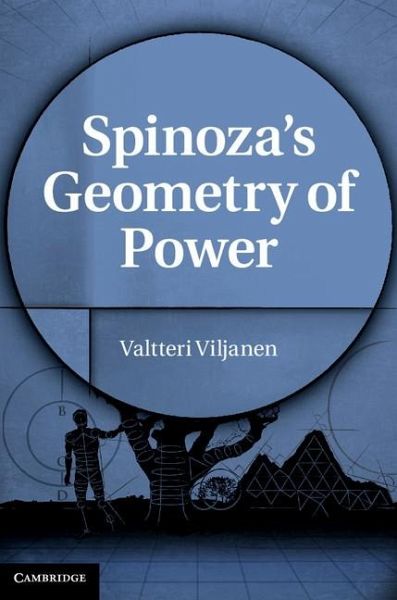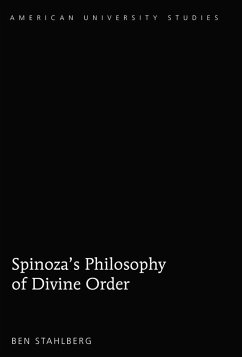
Spinoza's Geometry of Power (eBook, ePUB)
Versandkostenfrei!
Sofort per Download lieferbar
25,95 €
inkl. MwSt.
Weitere Ausgaben:

PAYBACK Punkte
13 °P sammeln!
This work examines the unique way in which Benedict de Spinoza (1632-77) combines two significant philosophical principles: that real existence requires causal power and that geometrical objects display exceptionally clearly how things have properties in virtue of their essences. Valtteri Viljanen argues that underlying Spinoza's psychology and ethics is a compelling metaphysical theory according to which each and every genuine thing is an entity of power endowed with an internal structure akin to that of geometrical objects. This allows Spinoza to offer a theory of existence and of action - h...
This work examines the unique way in which Benedict de Spinoza (1632-77) combines two significant philosophical principles: that real existence requires causal power and that geometrical objects display exceptionally clearly how things have properties in virtue of their essences. Valtteri Viljanen argues that underlying Spinoza's psychology and ethics is a compelling metaphysical theory according to which each and every genuine thing is an entity of power endowed with an internal structure akin to that of geometrical objects. This allows Spinoza to offer a theory of existence and of action - human and non-human alike - as dynamic striving that takes place with the same kind of necessity and intelligibility that pertain to geometry. Viljanen's fresh and original study will interest a wide range of readers in Spinoza studies and early modern philosophy more generally.
Dieser Download kann aus rechtlichen Gründen nur mit Rechnungsadresse in A, B, BG, CY, CZ, D, DK, EW, E, FIN, F, GR, HR, H, IRL, I, LT, L, LR, M, NL, PL, P, R, S, SLO, SK ausgeliefert werden.













